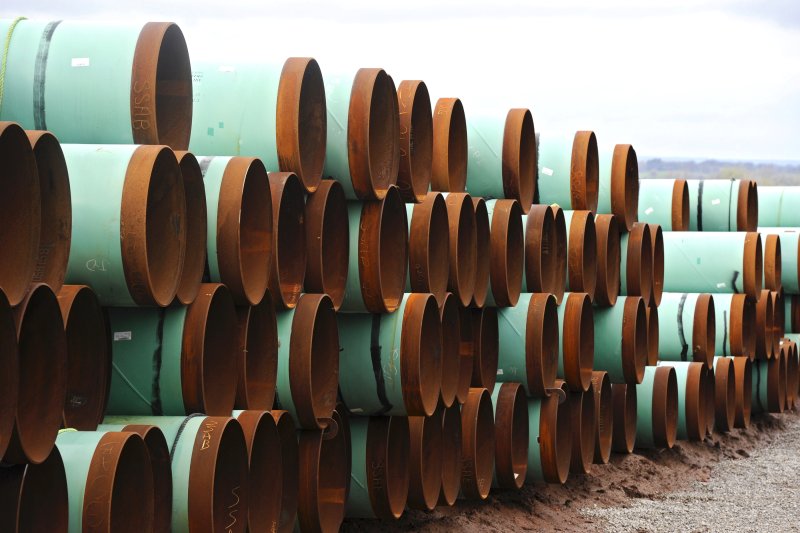Opponents of the Keystone XL oil pipeline argue there are too many legal hurdles yet to be cleared for construction to start any time soon. File photo by Larry W. Smith/EPA
Feb. 19 (UPI) -- Opponents of the Keystone XL oil pipeline planned from Canada argue the company behind the project, TransCanada, is optimistic about its timeline.
TransCanada concluded the open season for commercial commitments to fill the Keystone XL pipeline on Jan. 18 with 500,000 barrels per day in firm commitments for the next 20 years, about 60 percent of the total design capacity. The company said the proposed project was contracted enough to proceed, but added last week it was looking to secure additional commitments.
In its earnings report last week, the company said it was continuing an outreach program with landowners in the route's potential path, some of whom are frustrated with eminent domain proceedings. The company is still facing legal challenges from landowners seeking legal fees and court costs from TransCanada's claim on eminent domain.
Bold Nebraska, one of the main opponents to Keystone XL, said TransCanada still faces a number of hurdles that would impede the project. The federal permit for the project relied on outdated environmental reviews and the state Supreme Court in Nebraska won't hear oral arguments for a case filed by landowners until late this year.
In a statement emailed ruing the weekend, Bold Nebraska added that it joined the Sierra Club in filing a brief on its lawsuit challenging the federal permit.
TransCanada said construction preparation for Keystone XL will advance through the rest of the year. Construction is expected to start next year.
A decision drafted in 2015 by the State Department under U.S. President Barack Obama said there were questions about the necessity for additional North American pipeline capacity given uncertainties about the future growth of Canadian oil sands production.
Lower crude oil prices in 2015 crimped spending in the energy sector and starved economies like Canada's that depend heavily on oil for revenue. In terms of cost, the State Department's analysis from 2015 said most Canadian pipeline projects would break even with oil holding steady at between $65 and $75 per barrel. West Texas Intermediate, the U.S. benchmark for the price of oil, was around $61 per barrel early Monday.
The State Department under President Donald Trump said in its permitting decision the break-evens for Canadian oil projects remained the same, but the sector in general has proven itself to be resilient in the low-price cycle.















